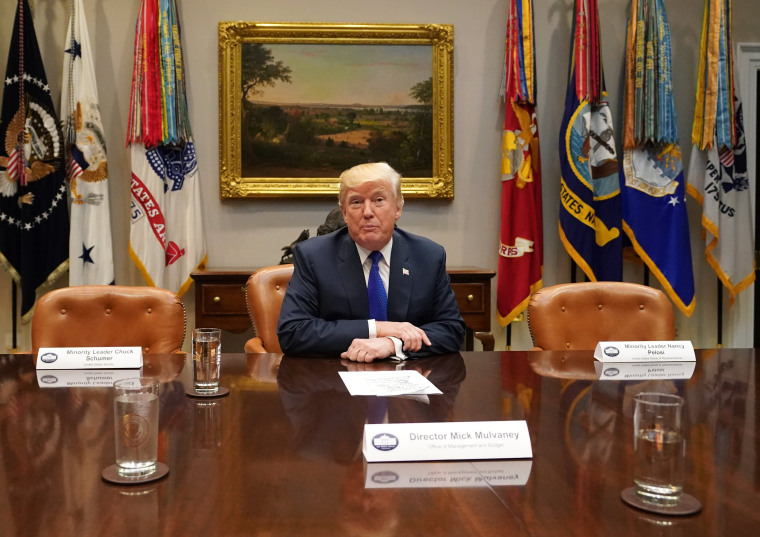Ahead of Donald Trump's State of the Union address, White House officials kept emphasizing the president's interest in promoting unity and cooperation. In private, however, something very different was unfolding.
The New York Times reported that Trump complained to his team about previous drafts of his remarks because they were, in his opinion, "too gentle on Democrats." The article added, "The president has sought to sharpen various lines, and while aides have urged him to congratulate Speaker Nancy Pelosi on her ascension after the November midterm elections, which handed control of the House to Democrats, they were not entirely clear that he would."
He didn't.
Also ahead of his speech, Trump had lunch with television news anchors, who reportedly heard the president deride Joe Biden as "dumb" and blast Chuck Schumer as a "nasty son of a bitch."
It was against this backdrop that the president delivered his State of the Union address and paid lip-service to the importance of unity and a sense of shared purpose.
"[W]e must reject the politics of revenge, resistance, and retribution -- and embrace the boundless potential of cooperation, compromise, and the common good."Together, we can break decades of political stalemate. We can bridge old divisions, heal old wounds, build new coalitions, forge new solutions, and unlock the extraordinary promise of America's future. The decision is ours to make."We must choose between greatness or gridlock, results or resistance, vision or vengeance, incredible progress or pointless destruction. Tonight, I ask you to choose greatness."
Trump then proceeded to spend the next hour pushing divisive issues in divisive ways.
In one of the night's more memorable lines, Sen. Chris Coons (D-Del.) responded to the presidential address by saying, "It was a slap in the face with an olive branch."
The contradictions that overshadowed Trump's remarks mattered, but so too does the way in which the Republican defines words such as "unity."
Four weeks into his five-week government shutdown, the president delivered White House remarks in which he said, "Both sides in Washington must simply come together, listen to each other, put down their armor, build trust, reach across the aisle, and find solutions."
On the surface, it was a perfectly nice sentiment, but it was a mistake to consider the remarks at face value. What Trump quickly made clear is that when he referred to bringing people together, what he meant was that everyone should stop arguing and begin giving him what he wants.
That hasn't changed. When the president talks about "unity," he means uniting around him. When he refers to "shared goals," he means his goals.
Indeed, early on in his State of the Union address, Trump declared, "The agenda I will lay out this evening is not a Republican agenda or a Democrat [sic] agenda. It is the agenda of the American people."
From the president's perspective, his ideas are necessarily Americans' ideas. It wasn't an invitation to begin negotiations, it was an instruction to policymakers to satisfy his wishes.
The fact that Trump doesn't seem to realize how counterproductive this posture is speaks volumes.
